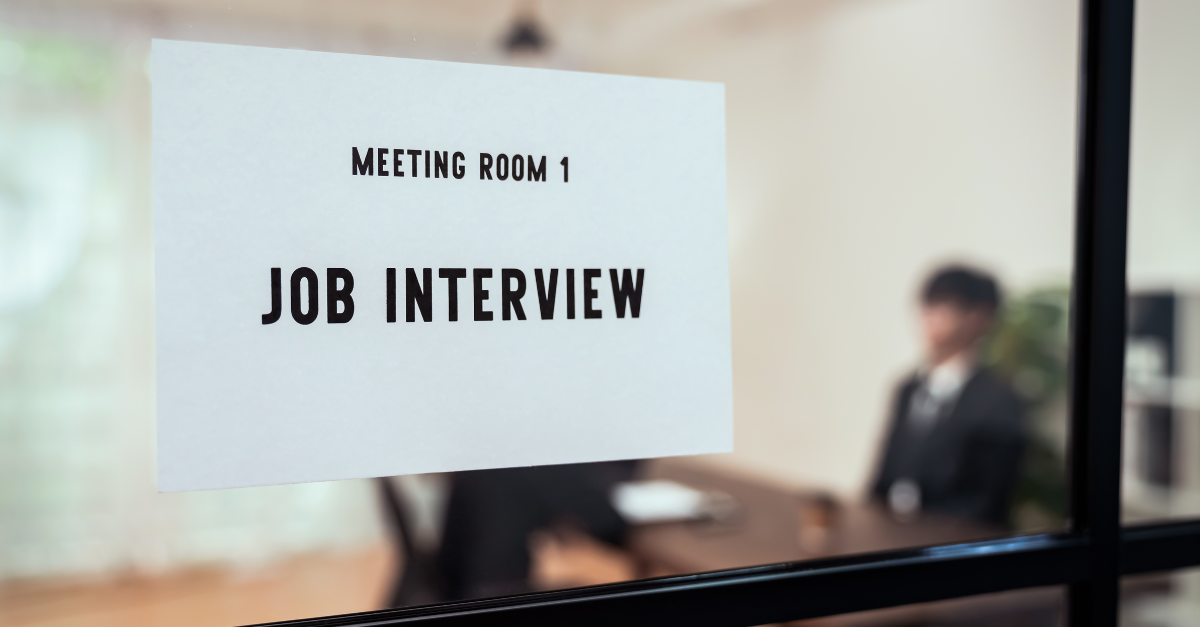Common Interview Questions – Part 3 – About Your Experience
This is the final blog in our Common Interview Questions series. We’ve covered About You and About the Position. This week we look at About Your Experience. What questions can you expect and what’s the best way to answer?
Tell me about your career to date
Keep it interesting and to the point. Elaborate when necessary and back up key points with examples from you current and previous roles. This is crucial! Highlighting important skills such as time management, prioritisation, team building and client relationship management skills. The key point at this stage is to draw attention and highlight your transferable skills. Strengthening your case all the time as to why you would be suitable for the position in question.
When were you most satisfied in your job?
Stay positive regardless of the circumstances. Never refer to a major problem with management and never speak ill of supervisors, co-workers or the organisation. If you do, you will be the one looking bad. Keep smiling and talk about leaving for a positive reason, such as an opportunity to other forward-looking reasons.
Why is there a gap in your CV?
If you show any period of unemployment on your CV, prepare to explain honestly. Layoffs are very soon in this century! So do not say that you were a self-employed consultant if you were laid off and working on temp jobs. Temporary employment or an intense job search of several month are both fine. If you took time off to care for a sick family member, state this very briefly and do not dwell on it.
Are you applying for other jobs?
Be honest, but do not spent a lit of time in this area. Stay focussed on this job and why you are more interested in their company than any other. Anything else is a distraction.
What part of your current role do you find challenging?
Discuss your learning curve so far. How you have gained added skills, e.g. dealing with clients, organisation skills, team working skills, time management and more. Ensure that you have prepared one to two points which you can effectively back up with examples and case studies.
Have you ever been in a position of conflict or difference of opinion?
If you are asked if you have ever been in a position of conflict, it is best to avoid using this word. Inevitably you can make yourself more and more nervous and apprehensive if you phrase things wrongly. Instead, always start off this answer with the fact that you have been in a position of difference of opinion. Explain the scenario in a short and interesting way. Bring across your team playing and emphasising skills. Your flexible approach to changing situations and changing ideas on how you mane both internal and external client relations.

What would your previous supervisor say your strongest point is?
Again, another chance to reinforce your positive traits. There are numerous good possibilities –
- Loyalty
- Energy
- Positive Attitude
- Leadership Skills
- Team Player
- Expertise
- Initiative
- Patience
- Hard Work
- Creativity
- Problem Solving
Tell me about a problem you had with a supervisor
Biggest trap of all. This is a test to see if you will speak ill of your boss. If you fall for it and tell about a problem with a former boss, you may well leave the interview right there. Stay positive and develop a poor memory about any trouble with a supervisor.
What made you move from Company A to Company B?
Very important question! Why do you want to leave your current situation for this role? Be prepared for this answer and put a lot of though into this. Your understanding of not just the company but how you fit in is vital. How do you feel that your skills will benefit the company. And how does this position benefit you for the new stage of your career? This shows that you are thinking long term.
What have you done to improve your knowledge in the last year?
Try to include improvement activities that relate to the job. A wide variety of activities can be mentioned as positive self-improvement. Have some good ones handy to mention.
Are there any areas you feel you need to improve on?
Be careful on how you answer this. Be sure not to daw attention to a key area of weakness that you did not mention earlier on. Best to follow on from your previous questions answered.
Tell me about a time when you helped resolve a dispute between others.
Pick a specific incident. Concentrate on your problem solving technique and not the dispute you settled. End on a positive note.
What has been your biggest professional disappointment?
Be sure that you refer to something that was beyond your control. Show acceptance and no negative feelings.
How would you describe a positive company culture in which to work?
Things to focus on here are –
- Team environment
- Dynamic busy team
- Challenging
- Room for progression
- Recognition for team contribution
- Effective upward and downward management
What are your salary expectation?
This is a loaded question. A gam that you will probably lose if you answer first. So, don’t answer it! Instead, say something like ‘That’s a tough question. Can you tell me the range for this position?’ In most cases, the interviewer, taken off guard will tell you. If not, sat that it can depend on the details of the job. Then give a range.
What important trends do you see in our industry?
Br prepared with two or three trends that illustrate how well you understand your industry. You might consider technological challenges or opportunities. Economic conditions, or even regulatory demands as you collect your thoughts about the direction in which you market is heading.
Common Interview Questions About Your Future
What are you long-range goals?
Refer back to the planning phase of your job search. Don’t answer ‘I want the job you’ve advertised’. Relate your goals to the company you are interviewing and says things like ‘In a firm like yours, I would like to…’ What if the company are concerned that your CV suggests that you may be over-qualified or too experienced for the position? Emphasise your interest in establishing a long-term association with the organisation. Say that you assume that if you perform well in this job, new opportunities will open up for you. Mention that a strong company needs strong staff. Observe that experience executives are always at a premium. Suggest that since you are so well qualified, the employer will get a fast return on his investments. Say that a growing, energetic company can never have too much talent.
Where do you see yourself in five years? One of the most common interview questions!
You have to keep this relative to the role you are interviewing for. Stay focused and show how you are confident you will have progressed naturally in the company to X level with 5 years.
What are your career goals?
It is probably better to focus on the short to medium term goals rather than ten years down the line. I guess an immediate goal is to secure this job!
The final word – do you have any questions?
Have some very good questions prepared. Make a list of three or four questions you wish to find out more about –
- The company culture
- Long term career progression within the company
- What type of projects will I be able to assist on?
Anything that shows you are already visualising yourself in the role is a great way to end the interview.
At 3ecruit, we are experts in 3D print recruitment and print management recruitment. We work with people just like you every day. We help secure the very best jobs in the UK, Europe and beyond. Get in touch with our team today!











